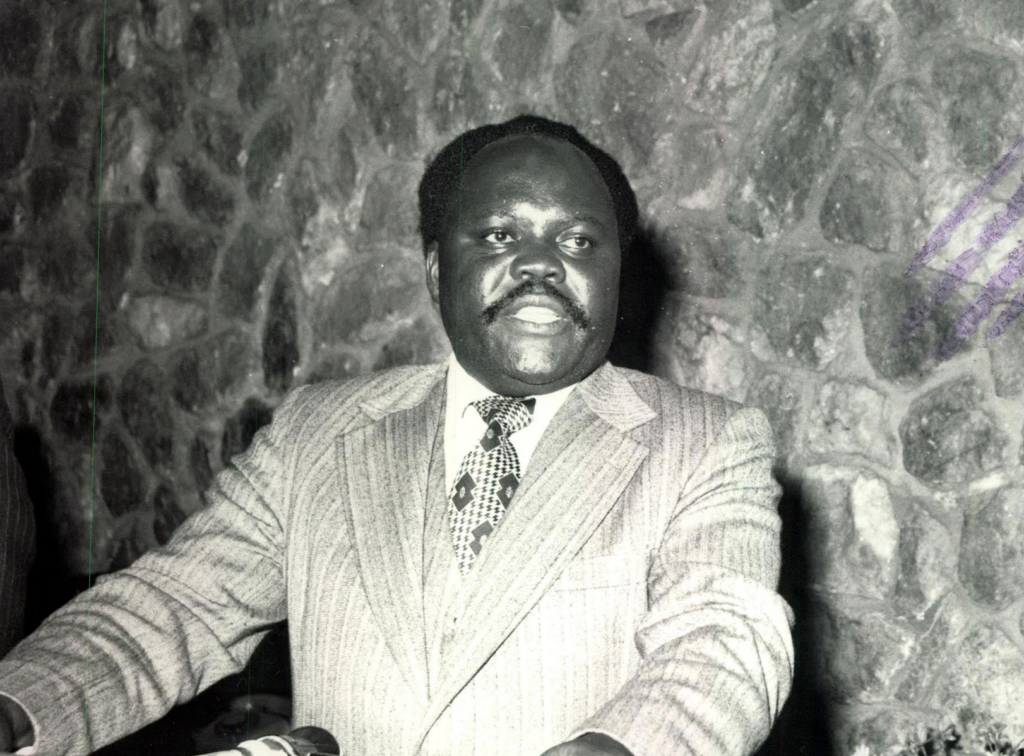For Kenyans, Peter Oloo Aringo may have been just another politician. However, for the residents of Siaya, his home county, he was not just any politician. He was a special, extraordinary leader who excelled not only in debating national issues in the August House but also in relentlessly pushing for the rights of Wanjiku—the moniker for the Kenyan man on the streets.
Aringo, who died on Friday evening while receiving treatment at a Nairobi hospital, served as the Member of Parliament for the Alego-Usonga constituency (Siaya County) at different intervals and was at one time the Kenya African National Union (KANU) party national chairman.
According to his long-time personal assistant, Mathews Obwolo, Aringo’s influence was evident in most of the freedoms that common Kenyans enjoy today.
He played a crucial role in the repeal of the notorious Chiefs Act (Cap. 210) and the establishment of the current National Government Constituencies Development Fund, formerly known as the Constituency Development Fund, says Obwolo.
Obwolo states that during his time as a legislator, Aringo believed that harambees (fundraising events), which were commonly used to collect funds for development projects, could not be relied upon for national development. He advocated for a system that would compel the government to release resources for rural development.
This belief led to the birth of the CDF. He came up with the idea and collaborated with like-minded individuals such as Eng. Muriuki Karue to draft the bill establishing CDF, which is credited with numerous visible and effective development projects across the country.
Regarding the Chiefs Act, Obwolo notes that the former Minister for Information and Broadcasting disapproved of the abuse of the act by provincial administrators who would exploit even slight opportunities to harass and confiscate property from citizens using the excessive powers the act granted them. He cited instances of livestock and poultry being forcibly taken to coerce residents into contributing to harambees for development projects.
- Ex-CJ Willy Mutunga’s son dies after health struggle
- Hasmukh Patel, philanthropic Mombasa Cement owner, dead
- High Court Judge David Majanja dies suddenly in Nairobi
In addition to his contributions on a national level, Obwolo highlights that the former KANU national chairman significantly impacted local development.
“He was the brain behind the establishment of schools like Barding, Hono, and Obambo secondary schools, as well as polytechnics like Kosema, Ndere, and others,” he says.
Aringo was also instrumental in the construction of the Siaya County Information Office, Obwolo adds.
A master orator and skilled politician, Obwolo states that Aringo knew how to turn situations to his advantage and seize opportunities when they arose.
Years ago, Aringo recounted to this writer how he took advantage of President Moi’s instruction to him, as the Minister for Information and Broadcasting, to ensure that the ministry established an information office in Kabarnet.
“Moi was in a good mood when he told me this, and I seized the opportunity to remind him that my district (now County), Siaya, also did not have an office and I would not mind constructing one too,” Aringo said during a courtesy call to the County Information Officer in Siaya in 2007.
Peter Oloo Aringo was born on 19 May 1941 in Alego, Siaya District.
He attended local schools in his area before joining St. Mary’s Secondary School, Yala (Siaya) in 1957. After passing his Cambridge School Certificate, he was admitted to Siriba College, Maseno, where he trained as a teacher from 1961 to 1962.
He was posted to St. Mary’s Yala, where he taught from 1963 to 1964, and then taught at Kapsabet Secondary School, serving as Acting Headmaster for a period.
Between 1967 and June 1969, he undertook a Bachelor of Arts in Education, graduating with first-class honours. He taught for four months at Ambira Secondary School before proceeding to the University of Toronto, Canada, where he studied Economics, History, Political Science, Philosophy, and Education, obtaining a Master of Arts in 1971. He lectured on African Politics for a year at the same university.
In 1972, he returned to Kenya and was posted to Aquinas High School before joining Upper Hill School.
In 1973, he was appointed Vice Principal of Kenya Polytechnic but resigned in 1974 to contest the Alego-Usonga seat in that year’s general elections.
Aringo won the 1979 general elections and was appointed Assistant Minister for Higher Education. He was later elevated to Minister for Information and Broadcasting.
In March 1982, he was transferred to the Ministry of Environment but was relieved of his position later that year and replaced by Dr. William Omamo.
He won the 1984 general elections, and in 1985 he was appointed Assistant Minister under the joint Ministry of Education, Science, and Technology. In 1986, he was elevated to Minister for Education.
After winning the 1988 general elections, he was again appointed Minister for Education. In 1991, he was transferred to the Ministry of Manpower Development but was relieved of his position that same year due to his overt pro-opposition sentiments.
After the repeal of Section 2A, he defected from KANU and joined the opposition, resulting in him losing his KANU national chairmanship.
In the 1992 general elections, Aringo lost the Alego-Usonga parliamentary seat to journalist Otieno Mak’onyango but made a comeback in 1997, only to lose it again in 2002 to Sammy Arthur Weya.
– By Philip Onyango, KNA



